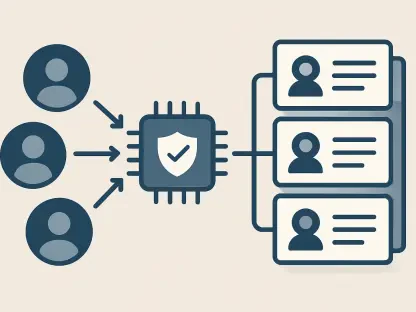In a digital era where data breaches have become alarmingly common, a recent incident involving Rainwalk Pet Insurance, a South Carolina-based company, has raised significant concerns about the security of sensitive information, highlighting the urgent need for stronger safeguards. A staggering 158 GB of data, encompassing personal details of customers and specific information about their pets, was left exposed due to a misconfigured, unsecured database. This breach, comprising over 85,000 files, laid bare critical details such as names, addresses, phone numbers, email addresses, and even partial credit card numbers. Beyond human data, pet-specific records including breeds, medical histories, and microchip numbers were also compromised, painting a troubling picture of vulnerability in an industry with limited regulatory oversight. As cybercriminals increasingly target niche sectors like pet insurance, this incident serves as a wake-up call for both companies and customers to prioritize data protection amidst escalating cyber threats.
Unveiling the Scope and Impact of the Breach
The magnitude of the Rainwalk Pet Insurance data exposure is staggering, with 158 GB of information left unprotected, accessible to anyone with the know-how to exploit it. Discovered by a cybersecurity researcher, the breach revealed a treasure trove of sensitive data, from customer contact information to intricate details about pets’ health and identification. This incident isn’t just a numbers game; it’s a profound violation of privacy that could have far-reaching consequences for thousands of individuals. The combination of personal identifying information with pet data creates a unique risk profile, as there are no direct privacy laws safeguarding animal-related records, unlike human health data protected by stringent regulations. This gap in legal protection amplifies the potential for misuse, leaving both the company and its clients exposed to significant harm in an era where data is often weaponized by malicious actors seeking financial gain or other nefarious ends.
Equally concerning is the delayed response from Rainwalk Pet Insurance in addressing the breach, which took nearly a month to secure the database after being notified. Such a lack of urgency raises questions about the company’s preparedness and commitment to safeguarding customer information. While it remains unclear how long the data was accessible or whether it fell into the wrong hands, the potential for damage is undeniable. Cybercriminals could exploit this information for a range of illicit activities, from crafting targeted scams to filing fraudulent insurance claims. The emotional connection pet owners have with their animals could be manipulated through tailored fraud, such as fake invoices or communications that appear legitimate due to the detailed nature of the exposed data. This breach underscores the urgent need for robust security measures in industries handling sensitive, yet often underprotected, information.
Financial and Privacy Risks Amplified by Exposure
The financial implications of the Rainwalk data breach are profound, posing risks not only to customers but also to the company itself. With partial credit card numbers and personal details exposed, the door is wide open for identity theft and unauthorized transactions. Additionally, pet microchip numbers included in the leaked data could be used in deceptive schemes, tricking owners into paying for fictitious renewals or services. The insecure refund process highlighted in the breach, involving easily interceptable payment methods like Venmo QR codes, further compounds the potential for fraud. For Rainwalk, the fallout could include substantial losses from fraudulent claims, especially considering the high cost of veterinary bills often covered by insurance. This incident reveals how a single lapse in security can cascade into a financial nightmare, threatening the stability of both individuals and the business at the center of the exposure.
Beyond financial threats, the privacy invasion resulting from this breach is deeply unsettling for affected customers. The combination of personal and pet data creates a uniquely exploitable dataset that cybercriminals can use to craft highly personalized scams. Imagine receiving a seemingly authentic email about a pet’s medical emergency, only to realize it’s a ploy to extract money or further personal information. The lack of regulatory frameworks specifically protecting pet-related data exacerbates this vulnerability, as there are fewer legal repercussions for mishandling such information compared to human records. This breach serves as a stark reminder that privacy in the digital age extends beyond traditional boundaries, encompassing even niche areas like pet insurance. It highlights the critical need for both companies and individuals to remain vigilant and proactive in safeguarding all forms of sensitive data against ever-evolving cyber threats.
Steps Toward Stronger Data Security
Addressing the vulnerabilities exposed by the Rainwalk breach requires a concerted effort from both pet insurance providers and their customers. Cybersecurity experts recommend that companies implement stringent security protocols, such as encryption and strict access controls, to prevent unauthorized access to databases. Regular audits and timely updates to security systems can also help identify and rectify potential weaknesses before they are exploited. For Rainwalk, adopting these measures could rebuild trust with clients and mitigate the risk of future breaches. The delayed response to this incident emphasized a gap in readiness that must be closed through proactive planning and swift action in the face of cyber threats. Companies in less-regulated sectors must recognize that the responsibility to protect customer data falls squarely on their shoulders, regardless of the absence of specific legal mandates.
Customers, too, have a role to play in safeguarding their information following such a breach. Vigilance is key—verifying the identity of anyone claiming to represent the company and sticking to official communication channels can prevent falling victim to scams. Monitoring financial accounts for unusual activity and being cautious of unsolicited messages related to pets or insurance claims are practical steps to minimize risk. Education about common cyber threats and how to spot them can empower individuals to protect themselves in an increasingly digital world. While the Rainwalk incident exposed significant flaws, it also presented an opportunity to learn and adapt. By taking actionable steps, both the industry and its clients can work toward a future where sensitive data, whether human or pet-related, is shielded from exploitation by those with malicious intent.









